Gil Schwartz, who does PR for CBS and journalism for Fortune, will face an audience Wednesday to plug his 14th book. Schwartz, a modern man/beast centaur, can play a key role for his fellow flacks/hacks if he wishes to.
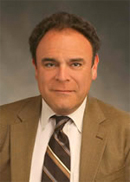 |
His double identity was almost freakish a few years ago and definitely against the Ethics Code of PR Society of America, which warns against “deceptive practices” and calls for relevant “interests” to be “revealed.”
You’ll like Schwartz’s books if you want to learn how to “use anger on your way to the top,” the “art of procrastination,” and when to bring a whoopee cushion to a budget meeting. To us, a lot of his writing is silly.
He labors in one of the strictest corporate environments in the U.S. CBS and Viacom are a $70 billion empire controlled by mogul Sumner Redstone whose communications control policies are legendary.
The Village Voice in 2010 described a Viacom staff memo as “48 pages of internal corporate terrorism.” Just about any communication that had any connection with Viacom was regulated including personal blogs, outside jobs and particularly talking to the press.
Employees had to report any press contacts to corporate PR. Suppliers came under the same strict rules. Said VV writer Joe Coscarelli: “For a media company to show such forceful disdain for anything media related or skewing toward individual expression isn’t only telling, it’s mildly terrifying, and at the very least, disturbing.”
Will Schwartz or Bing Show Up Wednesday?
The question is who will show up Wednesday—brash, big-mouth Bing or tight-lipped Schwartz? He was interviewed by Melissa Chessher of the American Way mag in 2005 who asked him whether Schwartz or Bing gave the better interview. “Schwartz has no comment on anything,” he replied.
Concurring is Larry Kramer, publisher of USA Today, who worked at CBS from 2005-2007. Kramer, writing on Schwartz’s new book, says he never saw Schwartz “do any actual work” or “write a word.” Schwartz was always “at his desk on the phone or reading a newspaper or magazine. Every once in a while he had a guitar and would practice on it for a country-music performance at a CBS meeting.”
 Kramer has given a good description of what goes on in corporate PR. NYT columnist David Carr says it is handled by “underlings” who block access to executives and “deliver slop.” Department heads do not normally get involved in press relations. More than 150 such execs will meet June 1-4 at the Ballantyne Hotel & Lodge, Charlotte, N.C. for the annual off-the-record meeting of PR Seminar. The environment, big data and the “Digital Age” will be discussed. PR as such is never discussed. The group took “PR” out of its name in 2007 but we continue to use it since “Seminar” could be anything and “PR Seminar” is still used on its tax returns.
Kramer has given a good description of what goes on in corporate PR. NYT columnist David Carr says it is handled by “underlings” who block access to executives and “deliver slop.” Department heads do not normally get involved in press relations. More than 150 such execs will meet June 1-4 at the Ballantyne Hotel & Lodge, Charlotte, N.C. for the annual off-the-record meeting of PR Seminar. The environment, big data and the “Digital Age” will be discussed. PR as such is never discussed. The group took “PR” out of its name in 2007 but we continue to use it since “Seminar” could be anything and “PR Seminar” is still used on its tax returns.
Schwartz Could Be a Bridge
Two-hatted Schwartz could serve as a human Rosetta Stone who can help unite the stressed, divided New York PR/journalism community. It is ill-served by the associations that supposedly represent them.
We wonder what the PR Society would do if half PR/half editorial Schwartz showed up at its doorstep? Would its ban on journalists be enforced?
Groups such as PRS, New York Financial Writers Assn., Arthur W. Page Society, Investigative Reporters & Editors and Committee to Protect Reporters need to break down the barriers between them and learn to cooperate.
Richest of all is New York-based CPR which had $15.1 million in assets as of Dec. 31, 2012 including $10.5M in stocks and other investments. Much of it is “restricted” but it’s too big a pile of money to be sitting on when so much needs to be done. IRE, based at the University of Missouri, has 700 members in New York, its biggest contingent, but no New York chapter.
Editorial jobs have shrunk to an alarming degree while PR and promotional jobs have skyrocketed. U.S. business is sitting on $5 trillion of cash while publications die, cut frequency or beg for money at holiday time. The Nation did that last December and is currently selling wine as a means of raising funds.
Writers often have no choice but to hop to the PR side even though they may have misgivings about it. Gorkana has a series on such career switches called “Moving to the Dark Side.”
Groups Should Work Together
Journalists have flooded into the PR arena as freelancers and this needs to be recognized. Ninety of the 300 members of NYFWA are freelance when this category did not exist a couple of decades ago.
NYFWA is so embarrassed about this that the 2013-14 directory stopped showing members by employer. Many PR people belong as “associate” members working for companies such as Deloitte Research, Vanguard, Dukas PR, Ernst & Young, Standard & Poor’s, the Creative Alliance, Samansky Group, and UBS.
Freelancers and PR/journalists should be allowed to join the PR Society as well as Page. PR people are welcome in all journalist groups. It’s hard to tell who does what anymore since so many companies are placing editorial-type ads in publications that are informative and helpful to readers.
“Networking is how most job leads are uncovered and most people are hired,” wrote Rick Spann of OI Partners-Gateway Int’l, career consultants, on the “Career Track” page of the Daily News April 24. That is a truism that cannot be repeated too often.
Michael Kinsley, writing in the May Vanity Fair on the decline of news jobs, provided a chilling description of a “content farm” somewhere in Maryland.
“Dozens of recent college grads—paid 75 cents an hour—sat chained to their computers grinding out blog items while editors stood above them with whips, shouting ‘Blog, you worthless scum.’”
He admits this was an exaggeration but it sounds like the “content mills” described by Thomas Frank in Harper’s. He likens the mills to 19th century factories that minimized labor costs. “Listening to the customer” is the manifesto under which they operate, he says.
Letting journalists join PR groups would balance the current uneven situation in which PR people have ready access to contact points of hundreds of thousands of editors via Vocus, Cision, PR Newswire, BusinessWire and other services. Those firms also happen to be biggest, steadiest supporters of the PR Society, taking prominent booths at its national conference each year at a cost of tens of thousands of dollars.
The ethical thing would be for such services to lobby the Society to provide similar information about its members to editors. Membership in the Society would open that door.


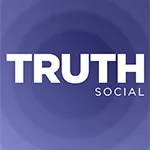 Trump Media & Technology Group today reported a $58.2M net loss on $4.1M in 2023 revenues, a disclosure that drove its stock price down 22.6 percent to $47.96.
Trump Media & Technology Group today reported a $58.2M net loss on $4.1M in 2023 revenues, a disclosure that drove its stock price down 22.6 percent to $47.96. Barry Pollack, an attorney at Wall Street’s Harris St. Laurent & Wechsler, has registered Julian Assange as a client with the Justice Dept. “out of an abundance of caution.”
Barry Pollack, an attorney at Wall Street’s Harris St. Laurent & Wechsler, has registered Julian Assange as a client with the Justice Dept. “out of an abundance of caution.”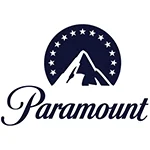 Paramount Global to slash 800 jobs in what chief executive Bob Bakish calls part of an effort to “return the company to earnings growth"... Rolling Stone editor-in-chief Noah Shachtman is exiting at the end of the month due to disagreements with chief executive Gus Wenner over the direction the magazine is taking... The New York Times broke the $1 billion barrier in annual revenue from digital subscriptions in 2023... Press Forward is investing more than $500 million to strengthen local newsrooms.
Paramount Global to slash 800 jobs in what chief executive Bob Bakish calls part of an effort to “return the company to earnings growth"... Rolling Stone editor-in-chief Noah Shachtman is exiting at the end of the month due to disagreements with chief executive Gus Wenner over the direction the magazine is taking... The New York Times broke the $1 billion barrier in annual revenue from digital subscriptions in 2023... Press Forward is investing more than $500 million to strengthen local newsrooms.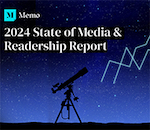 The majority of news articles are read within the first three days of publication, according to a recent report.
The majority of news articles are read within the first three days of publication, according to a recent report.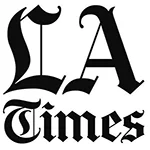 The Los Angeles Times gives pink slips to 115 people or 20 percent of its newsroom staff... TIME is also laying off about 30 employees, which is approximately 15 percent of its editorial staff... The Baltimore Banner, which was launched by Stewart Bainum in 2022 after he failed to buy the Baltimore Sun, added 500 subscribers per day in the three days following Sinclair Broadcast Group's deal to purchase the Sun.
The Los Angeles Times gives pink slips to 115 people or 20 percent of its newsroom staff... TIME is also laying off about 30 employees, which is approximately 15 percent of its editorial staff... The Baltimore Banner, which was launched by Stewart Bainum in 2022 after he failed to buy the Baltimore Sun, added 500 subscribers per day in the three days following Sinclair Broadcast Group's deal to purchase the Sun.


 Have a comment? Send it to
Have a comment? Send it to 
No comments have been submitted for this story yet.